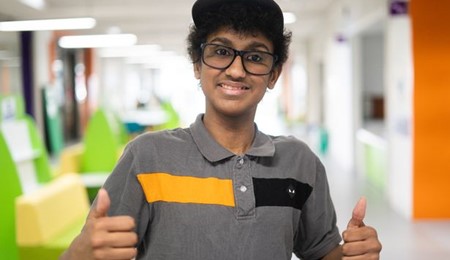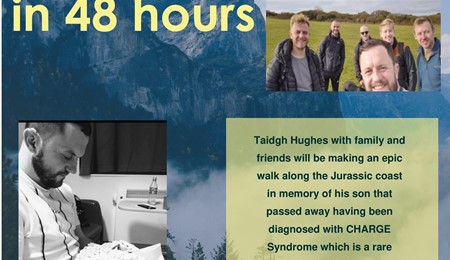Tyrese Dibba, who has Charge Syndrome, created a series of BSL videos which were watched by more than 80,000 people.
His character will be the head teacher of charity Sense's Sign School.
Tyrese said he loved to be able to continue his work.
For his work during the pandemic, Tyrese received a Points of Light award from the prime minister and the Stephen Sutton Inspiration Award at the Pride of Birmingham Awards 2021.
"Deaf people shouldn't be excluded," he said.
"You should be able to chat to everyone, regardless of disability."
Read more here
Latest News

Improving our understanding of the neurodevelopmental disorders caused by CHARGE syndrome could open the way for new treatments.
Posted on Wednesday 6 April 2022
CHARGE syndrome, which affects approximately one in 10,000 newborns worldwide, is associated with neurological and behavioural conditions like intellectual disability, attention deficit disorder, conv…

Tyrese Dibba stars in animated class
Posted on Tuesday 22 March 2022
A teenager who helped thousands of people learn British Sign Language (BSL) during the first Covid-19 lockdown is being turned into an animated character in new lessons.

A Walk for Charge
Posted on Tuesday 11 January 2022
Taidgh Hughes with family and friends will be making an epic walk along the Jurassic coast in memory of his son that passed away having been diagnosed with CHARGE Syndrome which is a rare genetic dise…

Behaviour In Charge Syndrome Online Questionnaire Study
Posted on Tuesday 8 December 2020
Study looking at a range of behaviours, skills and impairments in CHARGE syndrome.
